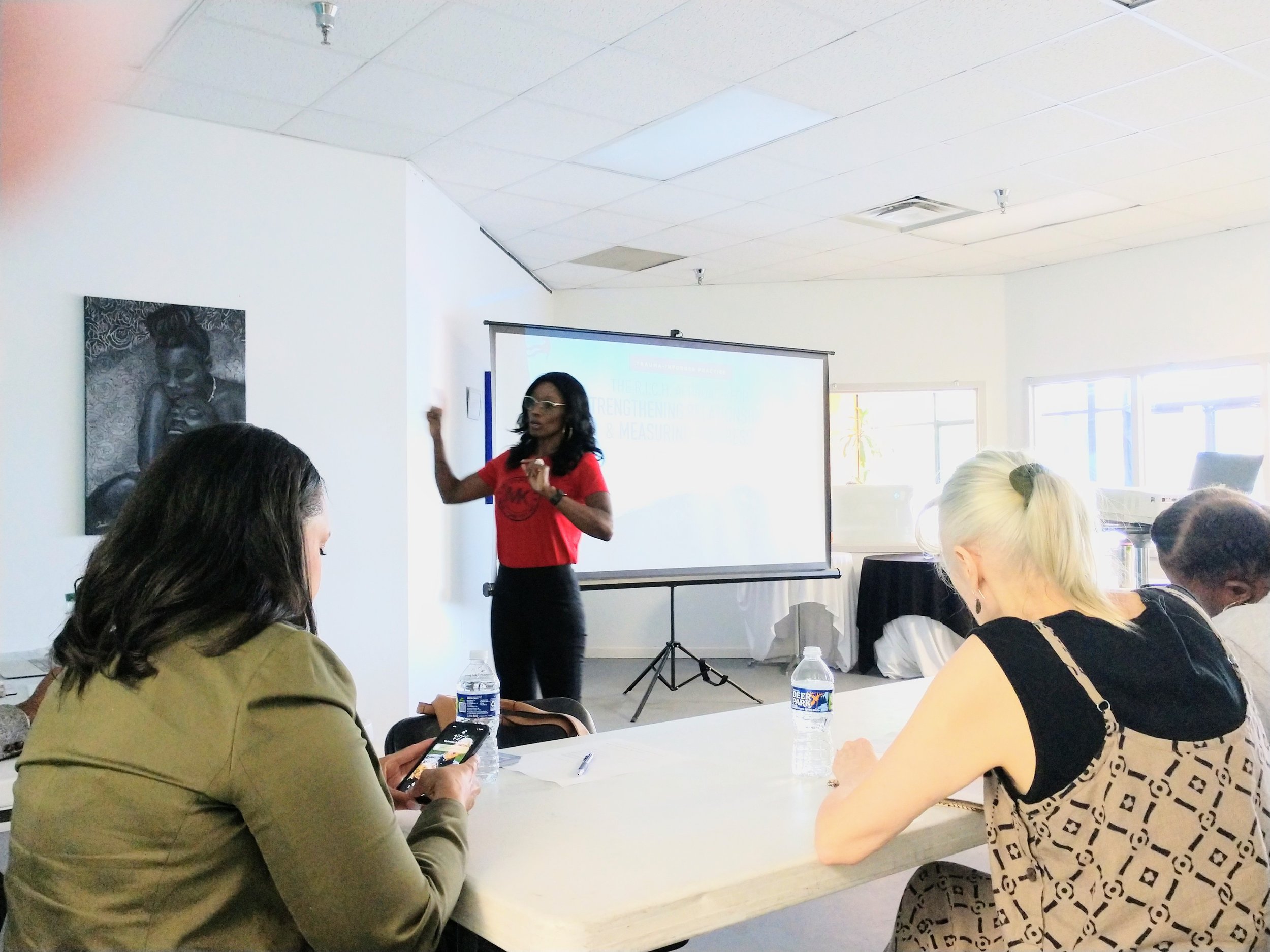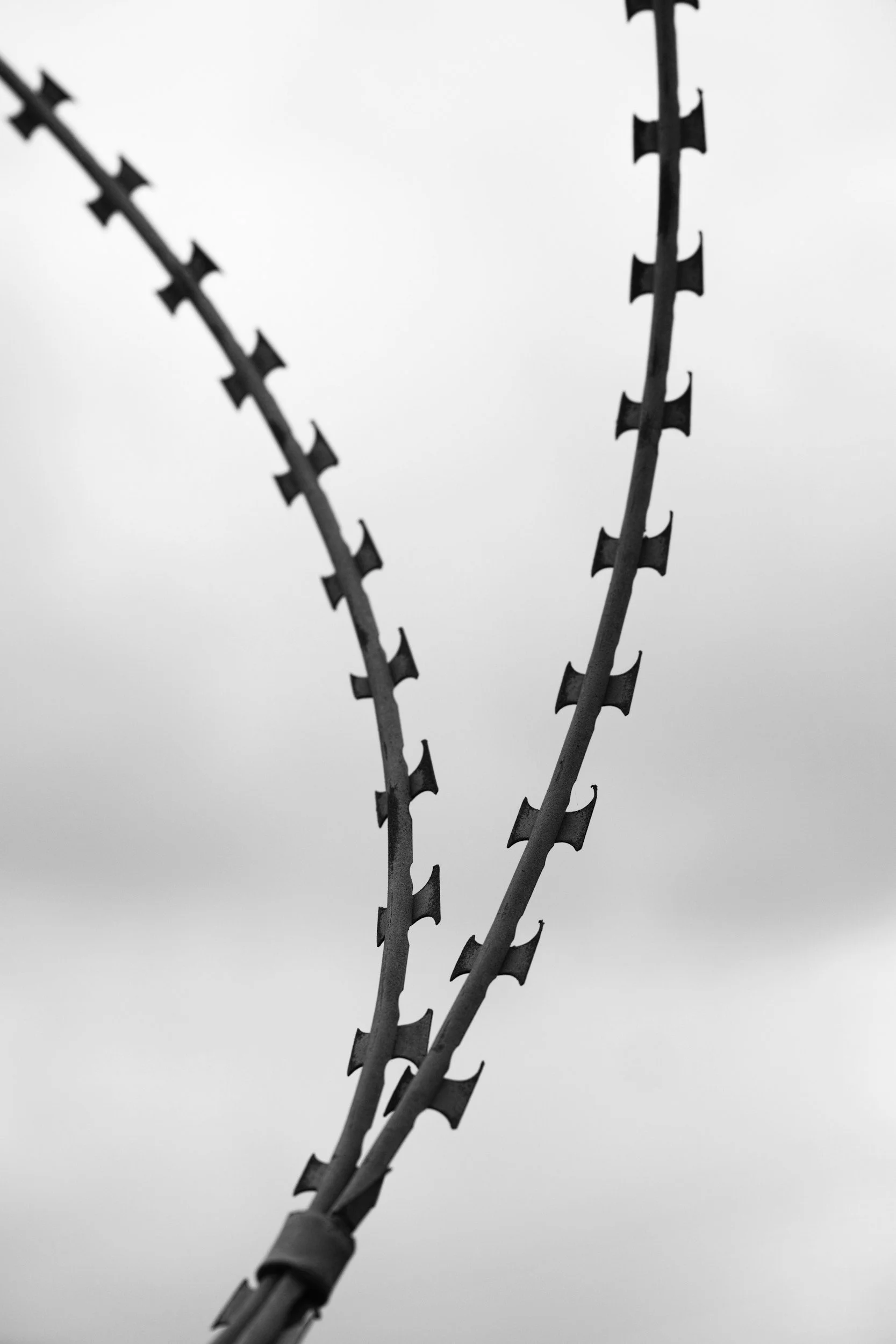Local Organizations Design Trauma Informed Care For The Formerly Incarcerated
*Note: This article contains language about self-harm, rape, and sexual abuse.
Suitland, MD - On Wednesday, September 21, about 6 local organizations (one attended virtually) met at the Creative Suitland Arts Center in Suitland, Maryland to receive training on trauma-informed care.Tonier Cain, an international trauma-informed trainer, led a two-and-a-half-hour training session. Her job is to help carceral institutions, and other organizations, identify and change rules that further harm those who have had traumatic experiences. Changing those harmful institutional practices, she strongly suggested, promotes an environment where people can heal.
“Trauma-informed care is not about the trauma, but about helping people respond to their triggers,” explained Cain, who has traveled around the world training workers in correctional facilities as well as in drug rehab programs.
Several organizations – Damascus House, Making A Difference (M.A.D), Jordan Peer Recovery, Creative Suitland, SLK Health Services, and Acivilate – attended the training. They received grant funds from Progressive Maryland to continue the ongoing work or to start new programs to help formerly incarcerated citizens. As part of the funding, grantees are required to attend trainings.
“The modules provide skill training that will facilitate the work of the various grant recipients, to facilitate their cooperation and interaction to overcome the silos that almost inevitably develop when doing direct service work, to have avenues for us to connect with the individuals they serve, and to broaden the array of resources they see as available,” said Kurt Stand, reentry campaign lead at Progressive Maryland. “Furthermore, for those interested, the trainings provide a pathway to engage in advocacy around housing, jobs, restoration of rights, and other issues of concern to people who had been incarcerated. The session you attended yesterday was a bit different from the others, rather than technical skills for grant recipient staff, this was focused on staff relations with individuals in their respective programs.”
Sign Up For The Newsletter
〰️
Sign Up For The Newsletter 〰️
As an example of how institutional practices could harm, Cain said she was once called to provide training at a facility. A person in charge, she said, told her they were having a hard time getting women to shower. Authorities complained that the women had hygiene problems. She asked the person to see the shower facility.
Cain and her team found that there were no shower curtains. According to Cain, the person in charge said the institution removed them all because a person attempted suicide using a shower curtain a decade ago. Cain pointed out that women who have been raped or sexually abused are highly likely to have a problem with bathing where there is little to no privacy. Such an environment can cause them to feel helpless and fearful. For Cain, the number one problem wasn’t that the women had hygiene problems. It was the authorities’ lack of awareness of how trauma negatively impacted these women’s everyday decisions.
“So the thing is a lot of times we have rules and regulations that do more harm,” said Cain, a sexual assualt suvivor, former criminal and drug addict.
Director of Creative Suitland Malachi Robinson and Rina Turner, program coordinator, attended the training. Robinson, Turner, and others have created a program titled C.H.O.I.C.E.S (Changing Hopeless Outcomes Into Creative Empowerment Solutions). The program, according to Robinson, will use the arts as a tool to help formerly incarcerated adults to heal and to reengage their local communities while also adding to their existing skill sets.
Participants will have the opportunity to learn visual arts and wellness, poetry (participants will write and perform their work before a live audience), and reunification (participants will learn about healing therapies).
Robinson said Creative Suitland hopes to work with Bridge Center At Adams House, an inter-agency collaboration between the Health Department, the Department of Corrections, the Department of Social Services, the Department of Family Services, and other community-based partners to provide opportunities to formerly incarcerated people. It is one of many organizations they hope to work with to help bring healing and hope to community members within the Suitland area.
Check Out Other Politcs News






Hyattsville, Maryland -- On Oct. 21, Aisha Braveboy, only the second Black woman elected to the county executive position, held the county’s swearing-in ceremony at City of Praise Church in Hyattsville.
Braveboy, who gave remarks after Ylawnda Peebles, wife of Bishop Joel Peebles, the pastor of the church prayed, thanked all the county officials for attending. She also thanked the county council, whom she said did not attend the ceremony, for confirming her nominations.